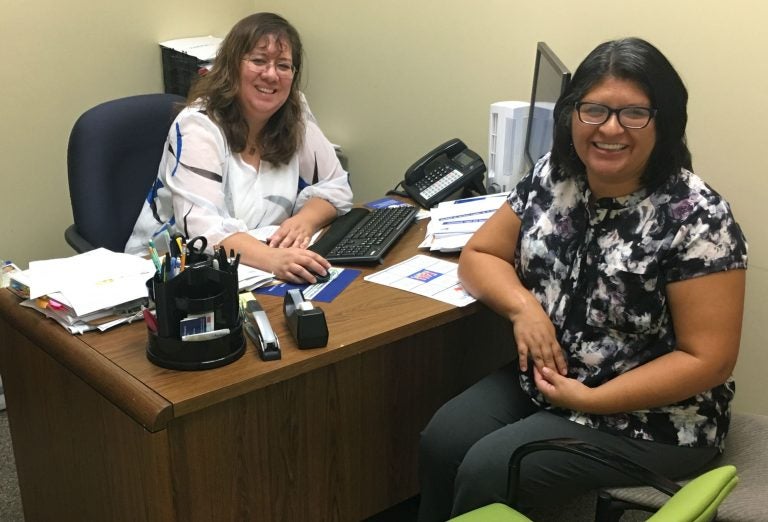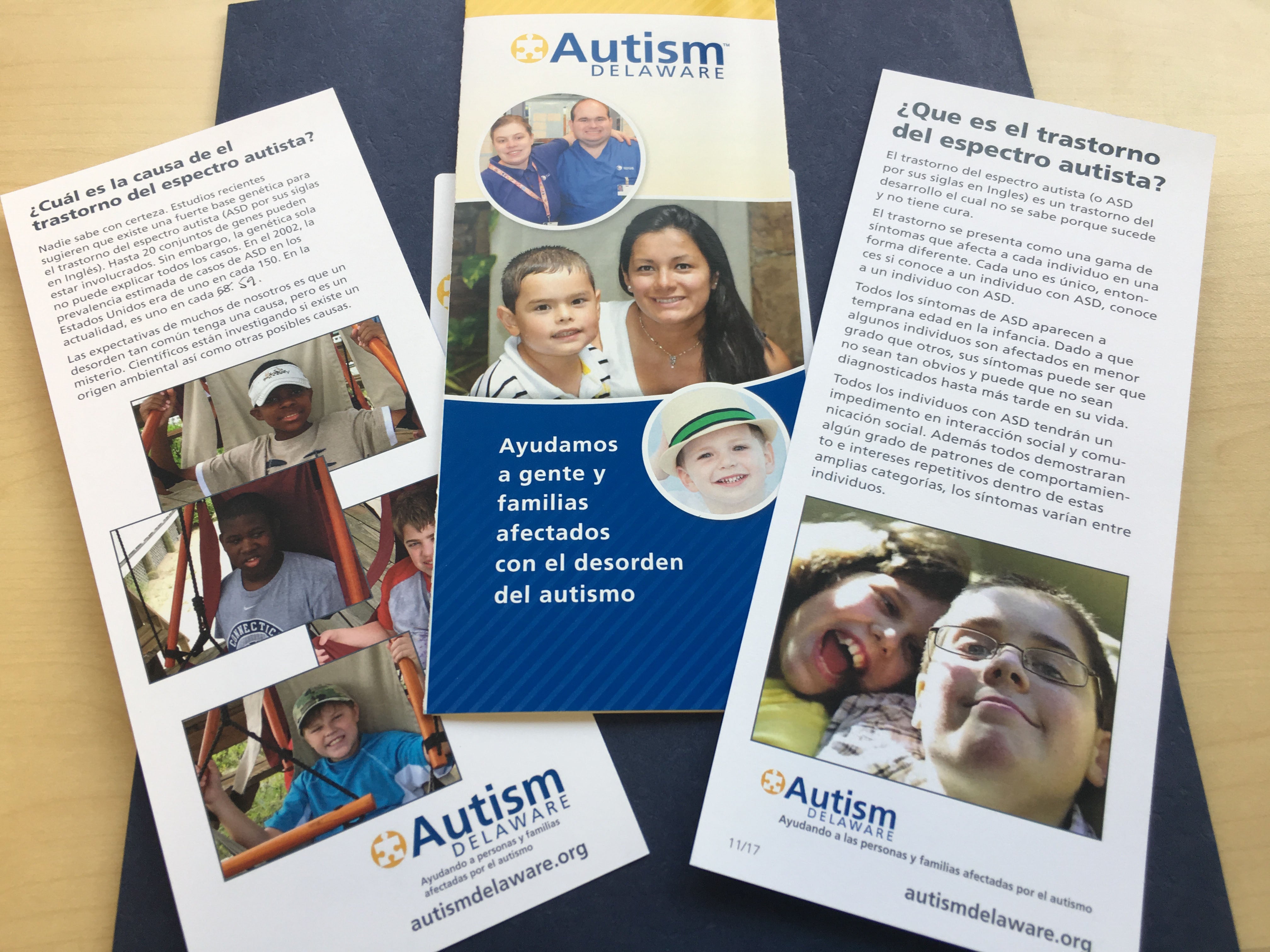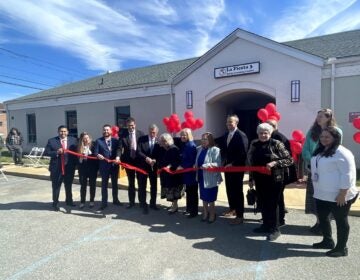Crossing cultural divide to help Latinx families deal with autism
An autism diagnosis is a challenge for any family. An outreach program aims to help bridge a cultural divide that can make things even tougher.
Listen 2:04
Ivanka Carbajal (left) and Maria Merma work as family navigators at Autism Delaware, helping connect Spanish speaking families to the services they need. (Mark Eichmann/WHYY)
An autism diagnosis is a challenge for any family. For some in the Latinx community, there’s a cultural stigma that makes that challenge even tougher.
New funding will help Autism Delaware increase its outreach to reduce that stigma and help those families.
“I was devastated. I didn’t know where to start,” said Maria Merma. When she found out her now-4-year-old son Bruno had autism, she was overwhelmed. She attended a meeting hosted by Autism Delaware to find some answers and found someone who understood her concerns.
“I just needed somebody to hold my hand, and she did,” Merma said.
Ivanka Carbajal works as a family navigator at Autism Delaware, and since that first meeting, she’s guided Merma through the process of getting her son connected to the services he needs.
“The fact that she was Latina like I was, oh that was a huge blessing,” Merma said. “To talk in your own language, not just Spanish, but the cultural language, is huge … You know that this person will understand exactly what you’re going through.”
Merma immigrated to the United States from Peru 13 years ago. She said an autism diagnosis comes with a big stigma where she’s from.
“In South America … things are handled very different with special-needs kids,” she said. “If I ever go home, he would never be treated like here.”
The number of families helped by Autism Delaware has grown dramatically in recent years. For fiscal year 2018-2019, 5,045 parents got in contact with the group to inquire about getting help, a 56% growth over the previous year. The group attributes that growth to better outreach and referrals from A.I. DuPont Hospital for Children and others.

Though the overall growth rate is big, the increase among Latinx families is even bigger. In 2017, Autism Delaware was in contact with nearly 118 Spanish-speaking families. The next year, that number increased to 659. The group credits the jump to improved outreach from Latinx navigators such as Carbajal.
Growth depends on building trust within the Latinx community, Carbajal said. “You have to make sure that trust is there in order for the family to let you in,” she said. For the past two years, she’s been providing support to both English- and Spanish-speaking families throughout the state.
She’s seen a difference in how English- and Spanish-speaking families engage.
“My families that are Spanish-speaking, they stick around a lot longer, my meetings take a lot longer, and I just service them for a longer period of time,” Carbajal said. Sometimes, it takes longer because the children with autism have not received the services they are entitled to by law, and there’s some catch-up work to be done.
“The earlier they can get the services they need, the better. Unfortunately, that has not been happening.”
Thanks to $25,000 in grant funding from the Arsht Cannon Fund, Autism Delaware was able to add Merma as an employee, teaming her up with Carbajal to further improve outreach to Latinx families.
“I have many friends who are affected with autism, many of them still have that stigma, they do not want to admit the issue,” Merma said. That has negative effects on their children, she said. “They want to force behaviors that they shouldn’t, disregarding the fact that there are sensory needs and limitations.”
Many Latinx children already face challenges to their success, whether it’s language or cultural barriers, and an autism diagnosis just compounds that struggle.
“We got to do everything we can to help this child for later on,” Merma said. “They have already enough with autism on their backs.”
WHYY is your source for fact-based, in-depth journalism and information. As a nonprofit organization, we rely on financial support from readers like you. Please give today.





